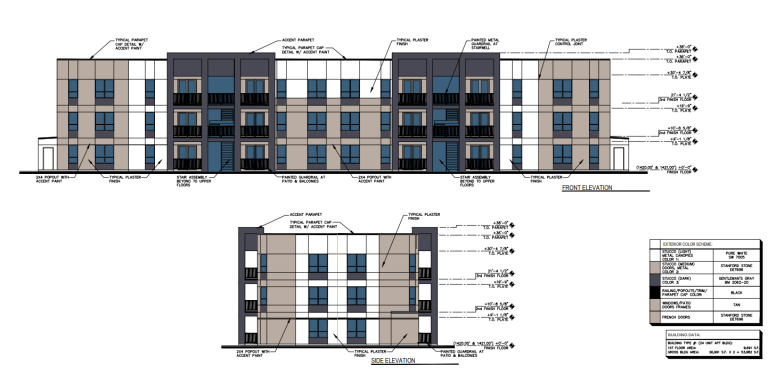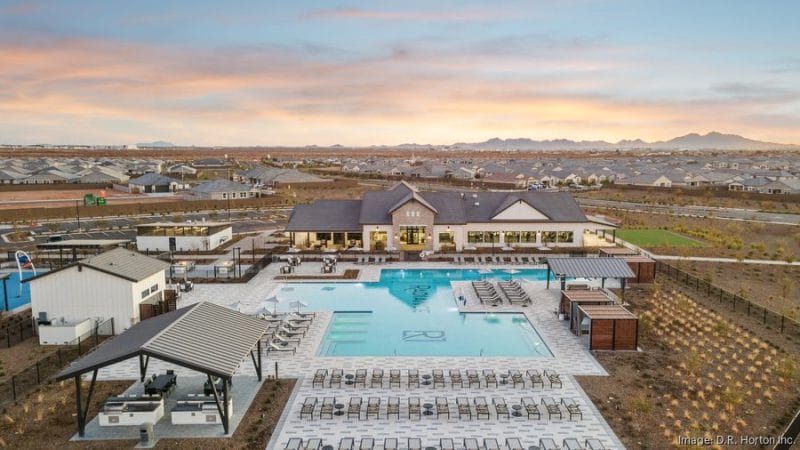
Disclosure: Rose Law Group represents Southwest Value Partners in its fight to stop the mine from locating in the middle of the Pulte Merrill ranch family community
(Editor’s note: News releases are published unedited, unless they contain factual errors.)
A town’s most basic responsibility is to provide infrastructure and protect natural resources for its residents. Each year, the Town builds new wells to obtain clean water, provides recreational amenities like hiking trails or pickleball courts, repaves roads and inspects bridges to ensure safe passage for motorists, and modernizes equipment at sewer plants to ensure its operations have a positive impact on the local environment. The Town routinely enforces international building and fire codes that protect our environment, our residents, our visitors, and our local economy.
As part of its annual budget process, the Town Council approves the infrastructure spending plan for the upcoming years. In 2011, the Town of Florence approved a Capital Improvement Plan totaling more than $228 million of projects from 2011 until 2018. The recently approved budget for the Town of Florence similarly included a plan for funding $81 million of improvements over the next five years. There is no doubt that preserving our infrastructure is a very costly, technical, and time-consuming effort. Nonetheless, the Town feels its duty to current and future residents requires it to make these investments in the community.
Consistent with its mission to protect natural resources, the Town of Florence has spent an average of $311,000 per year (since 2013) to enforce zoning regulations and to participate in the public permitting process surrounding the Florence Copper project. Despite objections from the Town and local residents, Florence Copper has sought to obtain permits that would allow for the direct injection of harmful chemicals into the groundwater, on State land within the geographical center of the Town of Florence, and directly into the drinking water supply.
The project involves injecting sulfuric acid (a highly volatile and deadly poison regardless of its level of acidity) into the groundwater to extract copper. While Florence Copper and its proponents want you to think of the solution as lemon juice or vinegar based solely on its level of acidity, it is not the acidity that makes the substance so dangerous. According to CDC and OSHA, sulfuric acid at 99.9% dilution is over 7 times the concentration necessary to cause death in humans and is 200 times the level constituting an immediate hazard to human life. Unlike concentrated lemon juice, concentrated sulfuric acid is prone to spontaneously combust if spilled,
requiring specialized HAZMAT gear and training to contain, as well as downwind evacuation, since toxic clouds of sulfuric acid can cause burns, blindness and death. Clearly, the injection of this type of solution could dramatically impact the quality of the local water supply.
As part of the Town’s Strategic Plan, adopted in 2017, the Town Council specifically expressed its objective to “Dedicate the necessary resources to address water quality and sustainability…while controlling costs.”
In balancing the financial interest of the Town with protecting our drinking water, the Town Council recently moved to dismiss two federal appeals involving an EPA permit. It did so not because of a lack of confidence in the merit of those matters, but because the Town could conserve its resources while still fully participating in the legal challenges at the state level – the civil zoning case and the mining permit (“Aquifer Protection Permit”) granted by the State.
Maintaining the legal challenges at the state level continues to hold Florence Copper accountable to the public and ensures the greatest level of protection to our drinking water supply. The Town has also actively defended its zoning ordinances against challenges from Florence Copper. That civil matter is currently set for trial in December 2018.
Up to this point, the involvement of the Town of Florence and public participation has notably impacted the permits in a few meaningful ways:
- Florence Copper’s initial environmental mining applications would have allowed full- scale commercial mining within the Town;
- While Florence Copper purchased approximately 1182 acres within the Town and proposed to conduct full-scale commercial mining, Florence Copper is currently limited to conducting a Pilot Test Facility on 2.2 acres of the 160 acres of State Trust Land leased by Florence Copper;
- Challenges by the Town and others to the State’s 2013 in-situ mining permit application resulted in the permit being sent back to the Arizona Department of Environmental Quality (ADEQ) for significant revisions;
- The 2013 mining application had no meaningful monitoring, a project area that allowed placement of pollutants on a larger area than necessary to conduct the Pilot Test, and monitors that would not detect that contaminants have polluted the drinking water until well after the injection phase of the project is completed;
- Because of the challenges, the remand required Florence Copper to, among other things: reduce the area on which pollutants would be placed; monitor closer to the injection area to identify pollutants escaping the recovery area; and, establish a meaningful monitoring system;
- That remand resulted in Florence Copper being required to return to ADEQ with a significant amendment to the permit application;
- The new application finally included electric conductivity monitoring, redrew the project management area, and moved at least one of the point-of-compliance wells, however it did not go far enough to protect the Town’s drinking water;
- Upon receipt of Florence Copper’s Significant Amendment, the Town and others exercised their constitutional right to comment, and pointed out that Florence Copper and ADEQ failed to comply with the remand requirements – an appropriate project management area was not proposed, the point-of-compliance wells were not moved to
detect contaminants within the operational life of the project, and monitoring alert levels were set such that Florence Copper would never have to publicly report an escape of contaminants;
- Because of the zoning challenges, Florence Copper is currently limited to work on State Trust Land.
Additionally, if the proposed mine was in full or partial production, the only revenues received by the Town (and by the school district) would be through property taxes collected. The Town would only receive revenues from property tax and not revenues based on the production of copper.
The costs to the Town to provide municipal services to the proposed mine would exceed any property tax revenues received from the proposed project. Increased costs to the Town if the mine was in full or partial production would include increased fire protection services and equipment needed to handle large scale chemical fires, increased police services, and the costs associated with the increased wear and tear on local roads due to the large number of heavy trucks required to transport resources (including millions of gallons of sulfuric acid) to the site in the middle of Florence.
There is an additional natural resource issue at stake that the Town alone cannot solve – the scarcity of Pinal County’s water rights. One need only google ‘Pinal County’ and ‘water allocation’ to bring up recent articles describing the dire state of those rights. When considering the scarcity of water in conjunction with the amount of water Florence Copper proposes to extract from the County’s limited groundwater resources – 1,300 acre-feet each year over the 27- year projected timeline (or 423,600,000 gallons each year) – and coupling that groundwater use with the fact that the environmental permits will allow the groundwater to be contaminated, it is clear why the Town of Florence continues to participate in this lengthy process.







